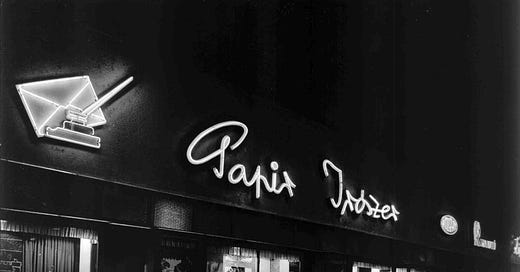On January 6th this year, Isaac Reina personally messaged his customers, informing them that, after 18 years, he would close his eponymous leather accessory brand. The message reached me only a few months after I last visited his Paris store to bring in a repair his kind staff meticulously took care of and shipped back to Berlin in perfect condition.
Born in 1968 in Barcelona, Isaac studied architecture before he started working in fashion. In 1998, he moved to the French capital, where he joined the venerable house of Hermès as Véronique Nichanian’s design assistant. Seven years later, he started his own accessories brand. Entirely made by hand in France from the finest materials available, Isaac’s simple yet subtle designs quickly gained a reputation for being among the best leather goods in the world.
Despite his international success, he had to inform his loyal customers that it was no longer realistic to survive as an independent brand „focused on timeless, high-quality pieces at relatively reasonable prices.“
A list of losses
It wasn’t the first time I experienced a brand I liked vanishing, a product I repeatedly bought being discontinued, or a creator I admired retiring early. We all remember the charming boutique hotel that ceased to exist or the bar where we were a regular now closed for good. But I’m not just talking about neighborhood businesses like the family-run hardware store that cannot find a successor, the long-established pastry shop that can no longer afford to pay the rent, or the small bookstore that finds itself unable to defy the digital transformation any longer.
What I’m talking about here is brands. Brands that, once found, saved you the energy of searching and had the potential to grow old with you, almost like a doctor who has known you for many years. Brands with which you have a personal history (I remember visiting Isaac in Paris to interview him for my book on quality) and whose products are now available in vintage form only.
Of course, I’m exaggerating. Some good brands survive, and new ones emerge. Still, a depressingly large number of genuinely unique businesses are bought by luxury conglomerates and become soulless, like the German suitcase manufacturer Rimowa, now part of LVMH. Others, like Helmut Lang, lose their magic after the founder's retirement.
In search of a business model
So, why’s that? Sometimes, a founder fails to find an equally brilliant business partner to support his creative mind (the way Pierre Bergé accompanied Yves Saint-Laurent). Sometimes, the demand for a particular style (say, minimalism) is saturated before it makes a comeback years later. These are all plausible reasons, but I suspect the real problem lies deeper.
At some point, I guess, most of Isaac’s customers had everything they could use from his range. Then what? Continue buying because you share the brand’s values and want to support it? Buy new colors and shapes only to keep a business running? It is a fundamental question whether brands focusing on long-lasting, repairable products can survive long term. What viable business models exist for an economy of quality beyond creating planned obsolescence and ever-increasing demand? Is it possible to sell „sustainable“ stuff and still survive?
When I consider how many brands I liked went out of business, I start doubting, at least regarding durable goods. Luckily, one needs something new to eat and drink every day.




